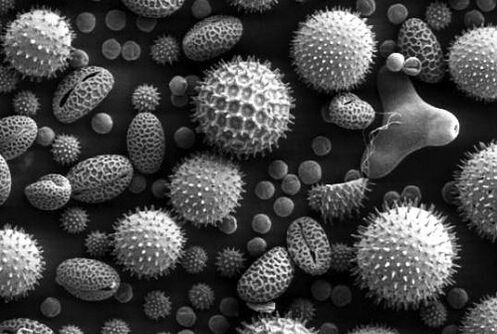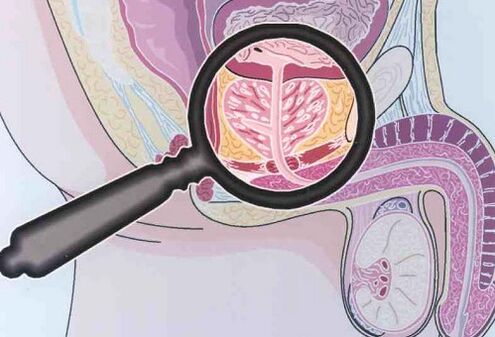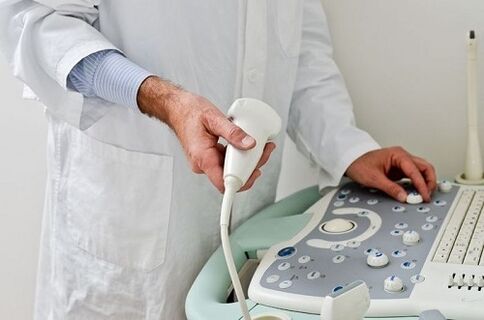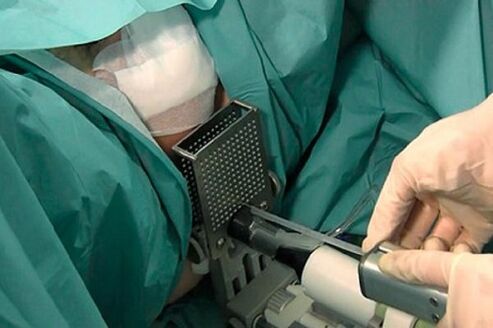In the modern world, almost 50% of men suffer from prostatitis. This disease not only brings pain and discomfort, but also very unpleasant consequences, even infertility. Therefore, every man should know how prostatitis manifests itself. Male health and fertility largely depend on this.

Knowing the signs of prostatitis and regular check-ups by a doctor guarantees timely detection and successful treatment of the disease.
cause of disease
Prostatitis is a urinary system disease of inflammatory etiology. The disease can be caused by a variety of factors.
The classification of prostatitis depends on the cause of prostate disease, how common the process is, and the characteristics of the lesions.
The following classification criteria are distinguished:
- Appearance factors are congestive and contagious. In the first case, the problem develops not because of infection, but because of stagnation of venous blood or secretions in the pelvic organs. The second involves the introduction of pathogenic microorganisms into the prostate. There is also mixed prostatitis.
- damaged area. With prostatitis, the glands become inflamed in different ways. It can be a chronic or acute form of the disease, which is subdivided into parenchymal, catarrhal, and follicular inflammation. Lesions may be sclerotic in nature or appear as abscesses. This category also includes atypical chronic prostatitis, the symptoms of which do not correspond to the classic case of the disease.

The symptoms of this disease also depend on what's causing it. The infectious form occurs due to the entry of pathogenic microorganisms through the reproductive tract into the prostate or in the context of chronic infection.
Non-infectious prostatitis can be triggered by a weakened immune system, hypothermia, sedentary periods, abstinence from sexual intercourse, or, conversely, excessive sexual activity. Each condition requires different treatment.

Prolonged absence of sexual intercourse can lead to stagnation of prostate secretion and the development of congestive prostatitis.
The signs and symptoms of prostatitis can vary depending on the form diagnosed. Self-medication is strictly prohibited because ignorant people may confuse the manifestations of one disease with the manifestations of another, for example, prostatitis with seminal vesiculitis, seminal vesiculitis, urethritis, or benign hyperplasia. Improper treatment can have extremely tragic consequences.
General symptoms
How does prostatitis manifest? If you don't consider a specific type, the disease may exhibit the following characteristic symptoms:
- Severe pain, first in the genitourinary tract, then spreading to the entire groin and abdominal area;
- Frequent pain in the scrotum and perineum, especially during urination and erection;
- During an erection, the sexual organs cannot reach the size they previously achieved;
- Intercourse becomes shorter.

Symptoms may appear together or separately. If we talk about pain, its intensity depends a lot on the form and extent of the disease. Unfortunately, many early stage patients do not pay attention to this manifestation, so the disease progresses and may develop into chronic prostatitis, which is dangerous for the emergence of infertility.
If a man begins to observe this symptom on himself, the risk of prostatitis is high and you should seek qualified help immediately.

Even mild symptoms of prostatitis should be a reason to see a doctor.
Symptoms of acute bacterial prostatitis
Bacterial prostatitis is a disease caused by infection. It is easy to evolve into chronic prostatitis, which requires prompt medical attention.
Often, acute bacterial prostatitis is secondary to any pelvic organ disease and has similar symptoms.
Acute bacterial prostatitis can present with the following symptoms:
- increased body temperature;
- A feeling of chills, accompanied by muscle tremors;
- pain in the prostate area;
- frequent urination and streaks;
- The pain spreads to the lower back and the entire perineum;
- Urinating problems.

If a patient passes the test, the disease can be suspected if:
- an increase in the number of white blood cells in the blood;
- bacterial cells are present in the secretions of the prostate;
- Cloudy white urine with a pH above 7. 0.

In prostatitis urinalysis, characteristic changes occur.
These are the main symptoms of acute bacterial prostatitis. If you don't pay attention to them and don't start treatment, the acute form can quickly turn into a chronic form, the signs of which need to be known to everyone.
Symptoms of Chronic Bacterial Prostatitis
Chronic prostatitis occurs due to neglect of treatment of the acute form of the disease, characterized by periods of exacerbation and remission.
This could be a finding for a man who once had acute prostatitis, was said to be treated and recovered, but after a while the symptoms of the disease (albeit a repressed version) returned. In this case, it is worth considering the chronic course of the disease.

Chronic prostatitis that has no apparent symptoms is dangerous due to late accidental discovery of an already advanced chronic prostatitis.
Chronic prostatitis has no clear manifestation and often leads to serious complications.
However, in this case, there is one caveat:
- Burns and cuts (sometimes causing excruciating pain) during toilet use and sexual arousal;
- A persistent urge to urinate, at least once an hour, without a feeling of complete emptying at the end of the procedure;
- Burning sensation in the urethra when and after going to the toilet;
- The pressure of the jet is weaker than before - it may even interrupt the flow;
- You always want to go to the toilet at night;
- An unpleasant burning sensation in the genitals after intercourse;
- ejaculation occurs fast enough;
- Insomnia and unprovoked anxiety can be observed.
All these main symptoms of chronic prostatitis can easily be confused with sexual dysfunction. The problem is that few people can admit this to themselves. So they start self-medication aimed at restoring sexuality, which only complicates the situation.
The insidious thing about chronic bacterial prostatitis is that it requires constant monitoring or it can lead to infertility, and a diagnosis can only be made after the patient has been fully diagnosed.

A complete test to detect prostatitis must include an ultrasound.
The symptoms of the disease can manifest in different ways, not only in chronic but also in acute bacterial prostatitis.
It all depends on the amount of bacteria in each patient and individual. Once the pathogenic organisms start to activate and multiply, the man starts to deteriorate. If the patient lives an unhealthy lifestyle (smoking, less physical activity, alcohol consumption, and harmful products) in addition to this, one should not be surprised that the disease keeps progressing.
Nonbacterial prostatitis and its manifestations
Nonbacterial prostatitis is also common. It can be useful to know the symptoms that can occur in this condition. A hallmark of the pathology is pain that occurs frequently, not just during intercourse or toileting.

Nonbacterial prostatitis is characterized by frequent nighttime urges to go to the toilet and excretion of more urine at night than during the day.
In addition, the following manifestations are associated with noninfectious prostatitis:
- genital pain;
- pain and discomfort in the groin area;
- nocturia and testicular pain;
- decreased urine output;
- Difficulty starting the urination process;
- Pain in the groin and perineum is gradually transferred to the lower back;
- groin, coccyx, and pubic pain;
- Discomfort after a bowel movement.

Psychological discomfort combined with physical pain during illness.
Signs of the disease may be accompanied by psychological disturbances. The patient becomes irritable because he is constantly tormented by pain and discomfort.
If measures are not taken in time, a man may even fall into a state of depression, so he should seek help not only from a urologist, but also from a psychiatrist.
It is important to note that the clinical manifestations of atypical prostatitis can be similar to many other diseases, while asymptomatic prostate disease may not have any obvious manifestations at all. Therefore, it is very important to find a qualified doctor who will prescribe some diagnostic measures and tests - urine, blood, semen test, ultrasound, biopsy if necessary, etc. Only after this can a doctor make a correct diagnosis and prescribe appropriate treatment.

In most cases, a biopsy is performed to rule out a malignant process.
Knowing the symptoms of prostatitis is important for the representative of each strong man, so as to know what kind of disease is afflicting him, because the function of the entire genitourinary system depends on it. The sooner a person seeks help, the faster he will be freed.























